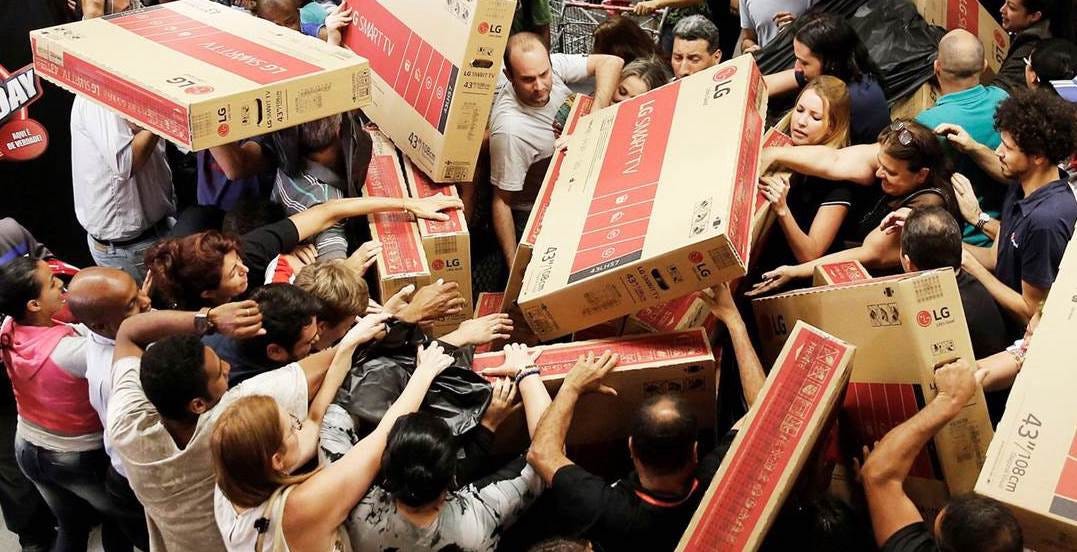👋 Hi friends, happy Friday! Welcome back to This Week in Retail.
I wanted to give a quick welcome to all of my new subscribers and say thank you to those of you who have been following me here for a while. I put a ton of work into this weekly newsletter and it means so much to me to have you all here.
This week will be part two of a two-part series discussing the negative environmental impacts of fashion and how we can rebuild the industry for a brighter future.
If you haven’t read Part One of this story, you can read it here.
Last week, we discussed the profoundly negative impacts that both the fashion industry and our cultural propensity towards over-consumption, has on the environment.
This week in Part Two, we’re going to end things on a brighter note and explore some of the potential solutions to this massive problem.
Greenwashing
While many retailers would love for you to believe that a simple change in the production process or fabric made from recycled water bottles will solve the environmental issues facing the fashion industry, that just isn’t the case.
The newest “eco-friendly” fad adopted by fast fashion houses is recycled polyester (rPET) made from recycled plastic water bottles. This sounds great, right? Making clothes from used water bottles to avoid them ending up in landfills. Wrong. Recycled polyester is harmful to both the earth and the wearer.
Many of the water bottles used in this process are not BPA free, which means these chemicals are being absorbed through our skin. Not only that recycled polyester, cannot be broken down in landfills so this doesn’t address the problem of clothing waste. While rPET is technically better for the environment than non-recycled polyester, it still has a laundry list of negatives.
This is just one of the many greenwashing marketing techniques that fast fashion houses are using to distract consumers from the actual problem: consumption.
But solving this problem will require a shift in mindset.
Shift in Mindset
Last week, we talked about how the expectation for bottom-line growth is one of the key contributors to the massive problem of over-consumption. Skilled marketers have tricked the American consumer into thinking that we need newer, better, cheaper things. All. The. Time.
We’re consumption obsessed.
It is hard to imagine Wallstreet ever prioritizing value-driven companies over growth companies. However, consumers often forget that we hold the power to change things.
It’s our dollar that they’re after, and if we shift our mindset and reject the narrative of the over-consumption of cheap goods, the industry will have to follow our lead.
But how can we do this?
The Circular Economy
Many industry experts believe that the only real solution is to adopt a circular economy. The term “circular economy” describes a system where the production of an item and the end of its life are equally as important.
Fast fashion houses don’t like this idea because it’s synonymous with less consumption, which means less growth to their bottom line. Nevertheless, young consumers, specifically Gen Z, are beginning to think about the full lifecycle of a garment, and the resale market is reaping the benefits.
“We need to get used to looking at things and understanding that nothing actually goes ‘away’ [when we throw it out]—there is no ‘away,’”
– Stacy Flynn, CEO of Evrnu.
In fact, the second-hand apparel market is expected to grow to $64 billion within five years. This is a fantastic start to creating a circular economy, but the real change will come with consumers investing in fewer, but higher-quality pieces and supporting brands with truly sustainable practices.
Next time you buy something ask yourself; what will happen to this T-shirt, handbag, or sneaker when I’m done with it?
News:
-
Amazon Launches Pharmacy Business: Amazon is making its biggest move yet into the pharmacy space through its newest business vertical; Amazon Pharmacy. Amazon Pharmacy is designed to make it easy and convenient to order prescription medicines online and they also offer savings program and free two-day shipping for Prime Members.
-
Facebook Debuts Shoppable Livestreams: Facebook partnered with Anne Klein to debut Facebook Shop’s live in-app shopping feature. Each of the live-streamed sales has limited-time promotions from the Anne Klein collection that can be purchased in-app during the event.
-
Shoppers Seek out Personalized Holiday Gifts: Online searches on Etsy and Pinterest indicate that holiday shoppers are seeking out meaningful holiday gifts, from personalized items to handmade goods. Homemade gifts and cooking will likely thrive during the holiday season, especially among shoppers who are on a tight budget or want to limit trips outside of the home.
-
Amazon’s Black Friday Deals: Amazon is offering its Black Friday deals beginning Friday and running through Nov. 27. Ahead of the holidays, the e-commerce giant is showcasing deals across a range of categories from toys and electronics to kitchen and fashion items.
Follow me on Social!
-Jackie


Recent Comments